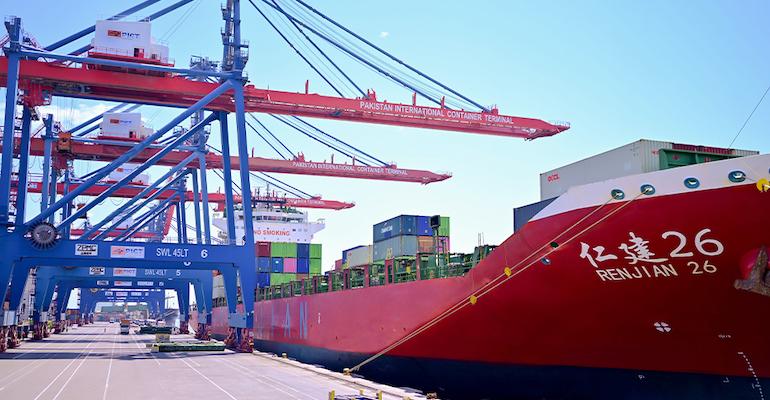Drewry Shipping Consultants conducted a global survey of 27 recently renewed, extended and expired terminal concessions, which revealed that while those in mature markets were often renewed, franchises in emerging markets were seeing intense competition with the incumbents not necessarily in pole position to win the new contracts.
Drewry’s Senior Analyst for ports and terminal, Eleanor Hadland said: “Concessions that were awarded in the late 1990s and early 2000s are now coming up for renewal. Often those in mature markets, where global operators are incumbent, and there may also be financial institutions involved, have been extended or renewed. Franchises in emerging markets are, however, up for grabs and the competition can be fierce.”
Hadland uses the recent Karachi Port concession renewal process where Filipino company International Container Terminal Services Inc (ICTSI) as the incumbent entered into negotiations with the port authority to renew its contracts.
“Negotiations stalled and very quickly UAE’s AD Ports Group signed a concession, taking over terminal operations just one week after ICTSI wound up its activities” said Hadland.
In emerging markets Drewry said that the original build-operate and transfer deals signed required the initial terminal operator to build the infrastructure and develop the port’s container business, when these contracts were handed out “there was a very different risk reward ratio than in today’s market,” Hadland points out.
“Now, when we look at the majority of these terminals the infrastructure and equipment is in place, there is an established customer base and the government has demonstrated that it can act as a responsible public sector partner.”
“It’s generally a good sign if the incumbents want to stay on, but there are a growing number of terminal operators looking for concessions in emerging markets now,” said Hadland.
She points to Abu Dhabi Ports (AD Ports) which has identified Africa, South Asia and the Red Sea as its regional operating space and is willing to bid for concessions to invest in. Other terminal operators including DP World, China Merchants and India’s Adani are looking to expand their terminal operations, intensifying competition for concessions as they arise.
These companies are looking for focussed on growth markets including Latin America, Southeast Asia and Africa to develop new concessions or to take over concessions in these markets where the opportunities arise.
Operators in mature markets are much more likely to have their contracts renewed.
“One reason is that when the original contracts were signed the terminals developed cranes and other terminal handling equipment for a certain size of vessel, part way through the concession term they needed to install larger cranes to meet the challenge posed by the mega-ships that carriers were building,” explained Hadland.
This meant that discussions between the terminal operators and the concessionaires led to major investment and a renewal of the terms of the concessions midway through the contract, offering little chance for other operators to challenge their incumbency.
Copyright © 2024. All rights reserved. Seatrade, a trading name of Informa Markets (UK) Limited.
Add Seatrade Maritime News to your Google News feed.  |

